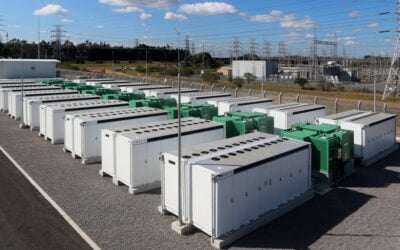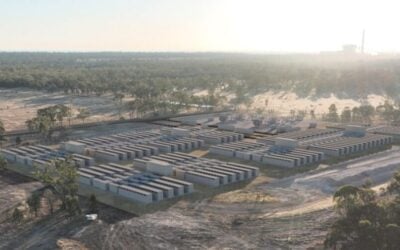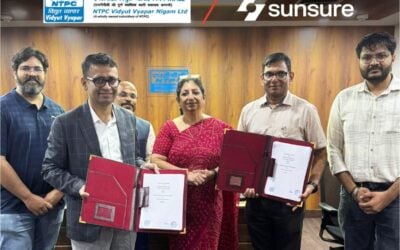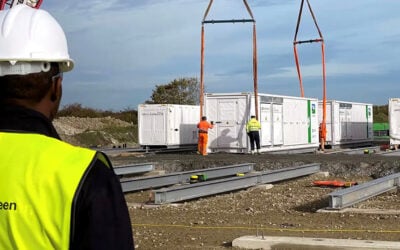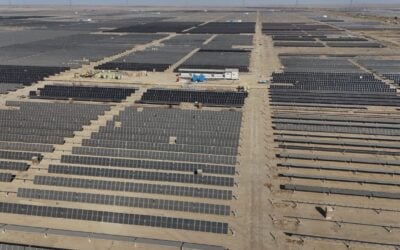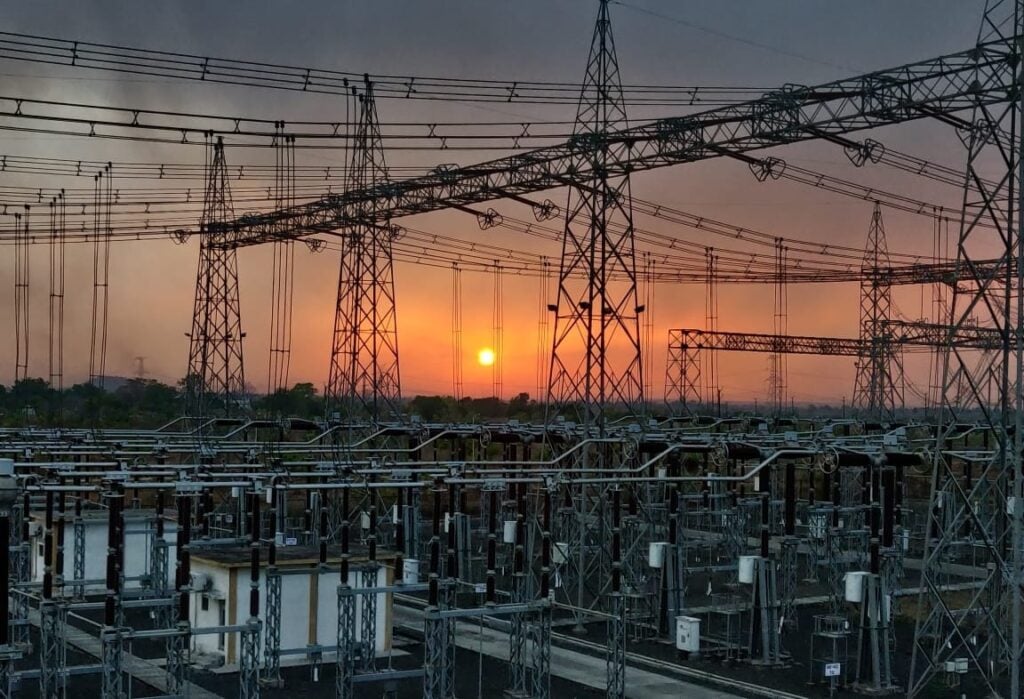
The International Finance Corporation (IFC) will loan IR4.6 billion (US$55 million) to infrastructure investor IndiGrid for a standalone battery storage project in Gujarat, India.
The international development finance institution, a member of the World Bank, announced the funding partnership earlier this week (2 July), claiming that the planned 180MW/360MWh battery energy storage system (BESS) will be India’s largest project of its kind to date.
IndiGrid is a listed private infrastructure investment trust, established in 2016 with backers including influential US private equity and investment company Kohlberg Kravis Roberts & Co. (KKR).
IndiGrid’s US$3.5 billion of operational assets include transmission lines, substations and solar PV power plants.
Enjoy 12 months of exclusive analysis
- Regular insight and analysis of the industry’s biggest developments
- In-depth interviews with the industry’s leading figures
- Annual digital subscription to the PV Tech Power journal
- Discounts on Solar Media’s portfolio of events, in-person and virtual
In April, the company announced the completion of a 20MW/40MWh BESS project in India’s capital territory, Delhi, with co-development partner Ampere-hour Energy (AHE).
That project, Kilokari BESS Private Limited (KBPL), received funding support from the non-profit organisation Global Energy Alliance for People and Planet (GEAPP). It was awarded a contract through a tender hosted by electricity distribution company (‘Discom’) BSES Rajdhani Power Limited (BRPL) in October 2023
KBPL was approved by the Delhi Electricity Regulatory Commission (DERC) in May 2024. At that time, IndiGrid described KBPL as India’s first commercially operated regulated utility battery storage project.
The company now claims a potential milestone for the India market with its new project in Gujarat. Few details about it were offered in an IFC release, however, it is thought to be the same project written about by Energy-Storage.news in a news item about a tender hosted by Gujarat Urja Vikas Nigam Ltd (GUVNL), which is a state-owned company responsible for bulk purchase and sale of electricity to four discoms.
GUVNL announced the winning bidders, including IndiGrid, in March last year. IndiGrid submitted the second-lowest tariff bid in a reverse auction at IR449,996/MW/month, while the lowest bid came from EPC and electric mobility group Gensol Engineering, at IR448,996/MW/month for a 70MW/140MWh project.
The result of a later GUVNL auction in June 2024 puts into doubt IFC’s claim that IndiGrid’s project will be the country’s largest standalone BESS, however, with Gensol bidding successfully for a 250MW/500MWh project.
Gensol bid a tariff of IR372,978/MW/month for that project and could take a ‘greenshoe option’ and expand it by a further 500MW/1,000MWh.
“Battery energy storage systems are central to the future of energy in India,” IndiGrid CEO Harsh Shah said.
“They bridge the intermittency of renewables, reduce fossil fuel dependency, and unlock flexible, reliable power delivery. With IFC’s support, we are proud to lead the deployment of one of India’s first and largest BESS assets in Gujarat.”
In November 2024, IndiGrid partnered with development finance institutions British International Investment (BII) and the Norwegian Climate Investment Fund to launch EnerGrid, a new platform focused on greenfield transmission and BESS development projects in India. Each of the three partners committed to invest US$100 million in EnerGrid.
India moving quickly up from 500MWh installed base
Nonetheless, IndiGrid’s project is of a significant scale for India, which is expected to deploy many gigawatts and gigawatt-hours of both batteries and pumped hydro energy storage (PHES) to enable a national goal of deploying and integrating 500GW of non-fossil fuel energy onto its grid by 2030.
India Energy Storage Alliance (IESA) president Debmalya Sen recently wrote a Guest Blog for Energy-Storage.news about efforts to support and promote energy storage technologies at regional and national level in India.
Sen noted that the Central Electricity Authority (CEA) estimates that India will need 2228.5GWh of BESS to achieve its COP26 goals, but at present, the installed base of battery storage stands at about 500MWh.
There are however, tenders being held for standalone storage and renewables-plus-storage almost continuously by national and state entities, as well as support schemes including Viability Gap Funding (VGF) Capex subsidies aimed at stimulating growth.
IFC will loan investment trust IndiGrid around US$38.5 million for its Gujarat project from its own account and will raise another US$16.5 million in concessional support from a World Bank Climate Investment Funds framework multi-donor trust fund, the Clean Technology Fund (CTF).
The latest deal also builds on an existing partnership between IFC and IndiGrid, after IFC approved US$150 million in loans in 2023 for four IndiGrid transmission network projects.
Elsewhere in India, in 2024 the IFC agreed to provide US$105 million in financing for a 550MWp solar PV project in Rajasthan in development by Brookfield Asset Management.

